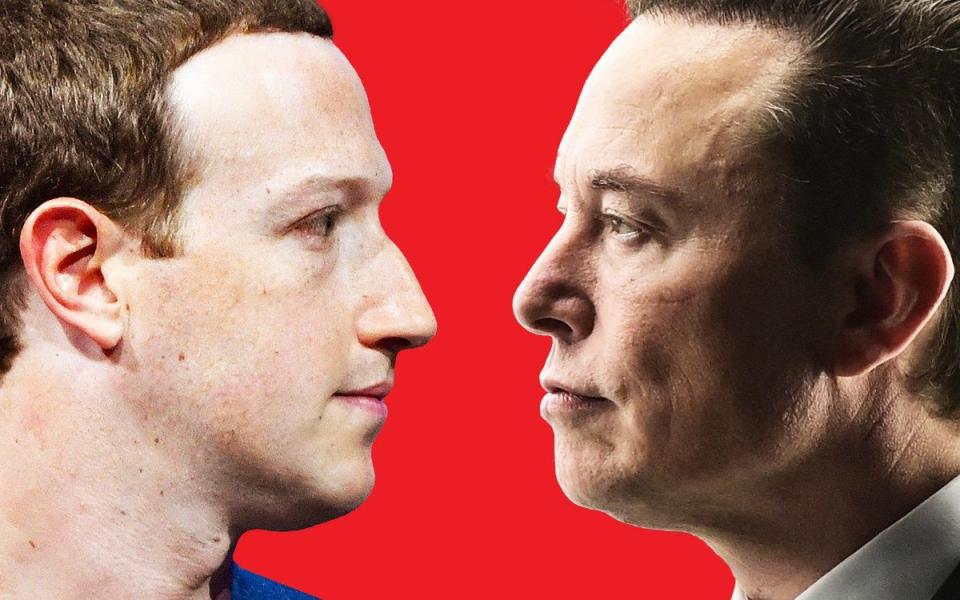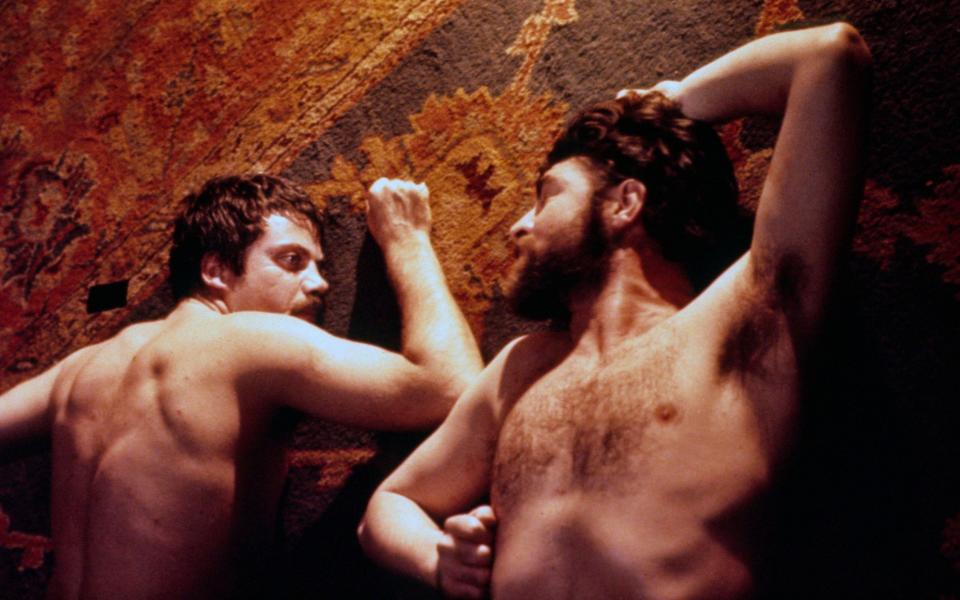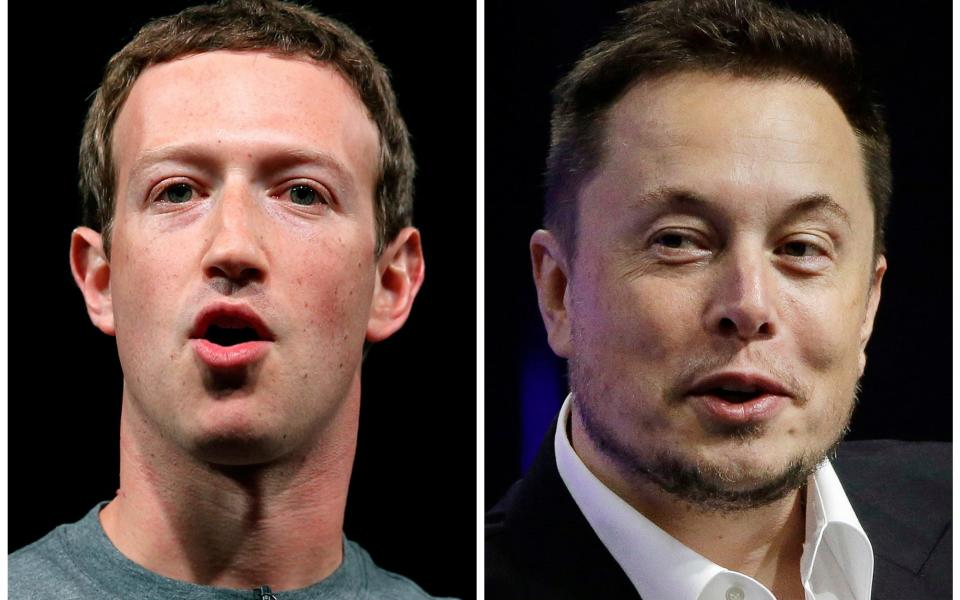The question at the heart of Elon Musk and Mark Zuckerberg’s Twitter spat

It was one of the most embarrassing moments of my life, and many years later I’m still not entirely clear how it happened. I was in a student bar and chatting amiably to somebody about his new girlfriend. She and I had been at school together, and I was explaining what an excellent choice he’d made.
The next thing I knew, we were outside, throwing punches at each other. Or rather, we were pushing and shoving and saying “Yeah?” and “Come on then?” as a crowd began to gather.
I was rescued by my girlfriend at the time, who was about 2ft 6in in her stockinged feet. She distracted my opponent by kicking him hard in the shin with her Doc Martens, then dragged me off into the night for a severe reprimand.
Oh, the shame. I now realise that this incident was very clearly an egregious example of toxic masculinity and must be condemned in the strongest possible terms. This sort of brawling is just wrong. And yet, I’m surely not the only person who is greatly looking forward to the most unlikely punch-up since Hugh Grant hit Colin Firth on the head with a dustbin lid in Bridget Jones’s Diary.
Two titans of the digital world have been squaring up to each other across cyberspace. In the red corner: Twitter tycoon Elon Musk. In the blue corner: Mark Zuckerberg, the founder of Facebook.
It began when Musk poured scorn on Zuckerberg’s plan to launch a rival to Twitter, provisionally called Threads, and matters quickly escalated. When somebody warned Musk that the Facebook man was a serious devotee of jiu-jitsu, Musk replied immediately: “I’m up for a cage match if he is”. “Send me location,” Zuckerberg replied.
Both men have dabbled in the combat arts, and there is a suggestion that Musk won’t be sticking entirely to Queensbury Rules. “I have this great move that I call The Walrus,” he says, “where I just lie on top of my opponent and do nothing.”
There is a raw fascination about fighting. Not for nothing does the most famous scene in the 1969 film Women In Love feature the two leading men, played by Oliver Reed and Alan Bates, wrestling naked in front of a fire.
Have a look on YouTube. It begins harmlessly enough, but soon becomes much more serious. “One ought to wrestle and strive to be physically close,” says Bates as they slump exhausted on the carpet afterwards. “It makes one sane”.

Bates and Reed made fighting look manly, primaeval, and romantic. What usually happens in real life is more like Firth vs Grant. Firth landed some decent punches, but only James Bond can fight in a business suit without looking a total wazzock. The scrap between George and Jerry in Seinfeld is even more accurate: pushing, shoving, and a profound sense of looking very silly.
It’s no surprise, by the way, to see somebody like George getting into a fight. As any nightclub doormen will tell you, it’s not usually tall, well-built chaps who cause problems. It’s always the little ones you have to watch.
Why do men fight? There are two theories. The sexual selection theory says it’s in our nature, and that we’re competing for the chance to reproduce. Social-role theory says that our behaviour is learned.
As is often the case in Britain, class plays its part. A 2009 Brunel University paper explains: “For high-status men, the costs of aggression (potential for a decrease in social status and risk of physical injury) may outweigh the potential benefits. For low-status men, the relative benefits may outweigh the cost. Success may not only protect one’s reputation, but also increase one’s access to valued resources (social status and mating opportunities).”
This class distinction might explain why football fans enjoy a good scrap – I’ve even seen the occasional fight while watching genteel Salisbury play in the Southern League – while rugby violence is largely confined to the pitch.
My own policy on fighting is very strict: avoid it if possible, however tempting it might seem. This is partly because I am short and have the physique of a Twiglet with a note from its mum. I would, undoubtedly, get a right kicking from anybody over, say, 5ft 4in.

But I mainly avoid fighting because it’s so embarrassing. Even when I’ve been involved in minor scuffles and somehow come off best, I’ve felt awful afterwards: wreathed in shame and embarrassment. But some men go out of their way to look for a good scrap. A friend who is a broad-shouldered six-footer, a personal trainer and ex-farmer, was at a bar one evening when a Scottish man sidled up to him and very politely asked if he fancied a fight.
“He was about as wide as he was tall,” said my chum, “and I didn’t fancy it. I said no thanks, but he virtually begged me to come out in the car park. “We saw him later that evening with a huge cut over his eye. ‘You got your fight then,’ I said. ‘Aye,’ he grinned. ‘And I got a right pasting’.”
In truth, we have a rather ambivalent attitude to physical violence. We pretend to disapprove, but are grateful when it comes to our rescue. Another friend was on a train years ago, when a young man in his carriage started flicking bits of paper at the other passengers.
This being Britain, nobody said anything. The young man then made the tactical error of flicking paper at my friend, who waited until the doors were about to close at the next station before seizing the offender and throwing him off the train. He was applauded for this by his fellow passengers.
Would most of us have done that? Probably not. My friend was in the Parachute Regiment at the time. That always helps.
As for The Rumble In The Digital Jungle, the bookies make Zuckerberg the clear favourite at 1/5 with Musk at 3/1. Apart from the actual bout, I’m looking forward to Nick Clegg, Meta’s president of global affairs, shrieking from the sidelines: “Leave it, Zuck – he ain’t worth it”.
Now that’s authentic, real-life fighting talk.

